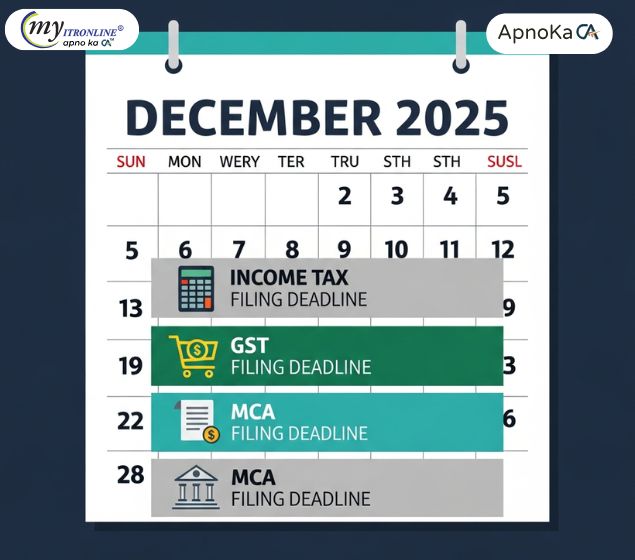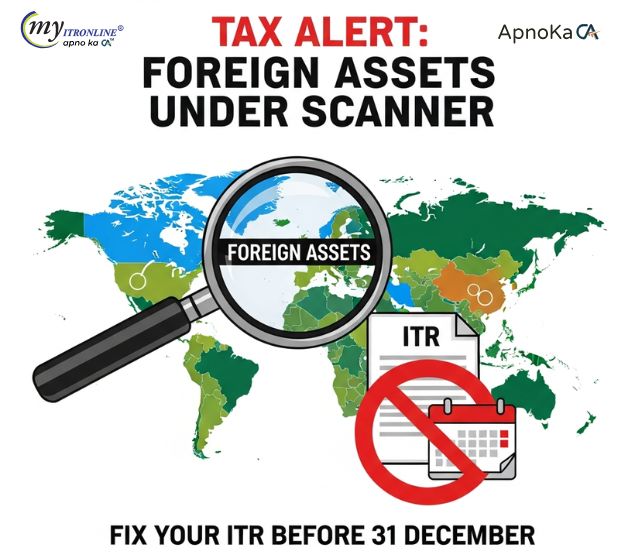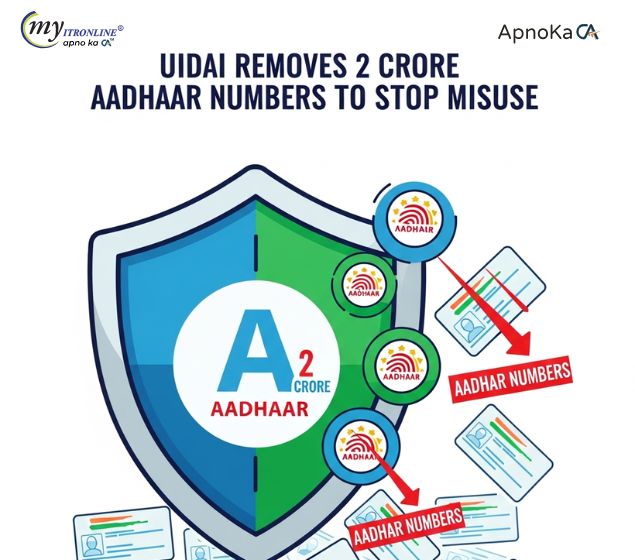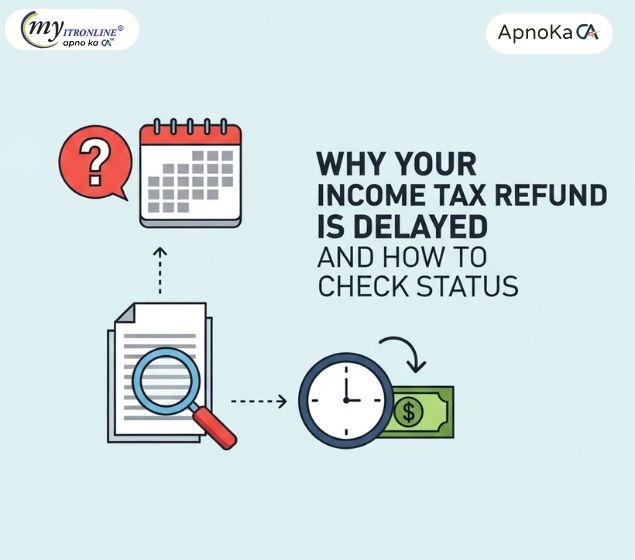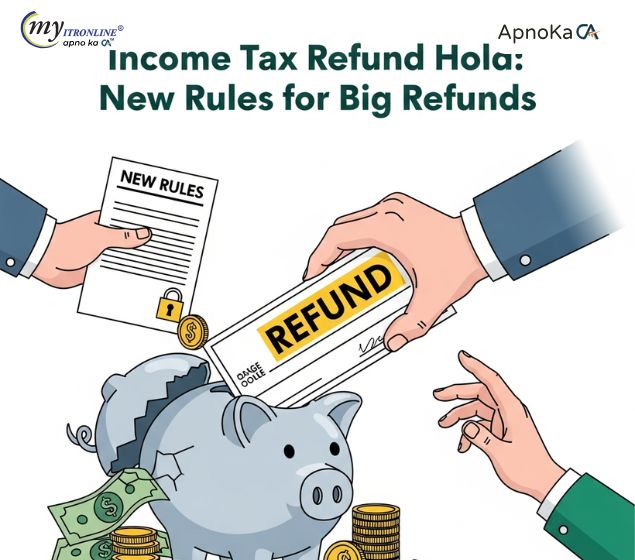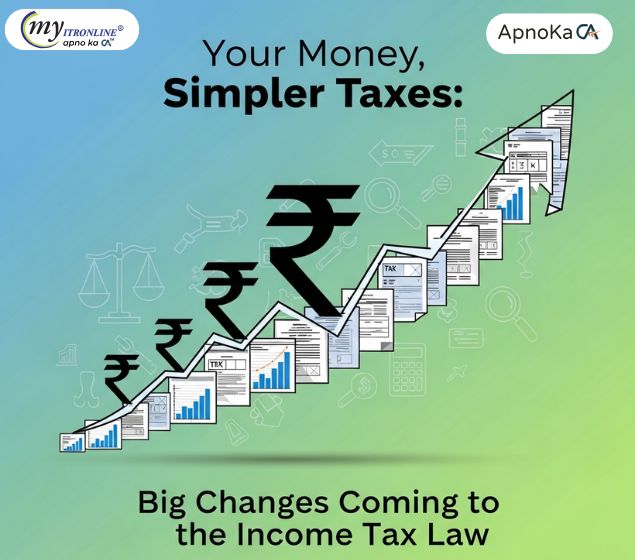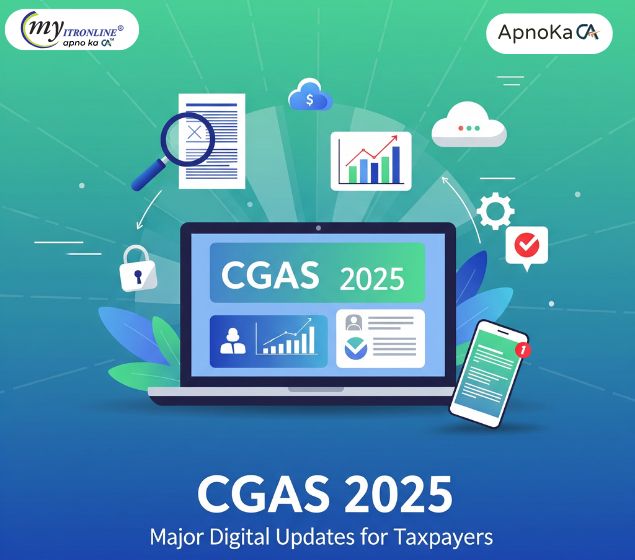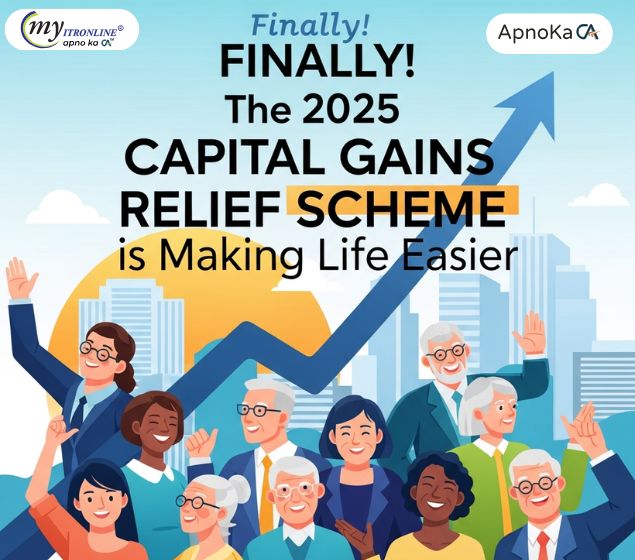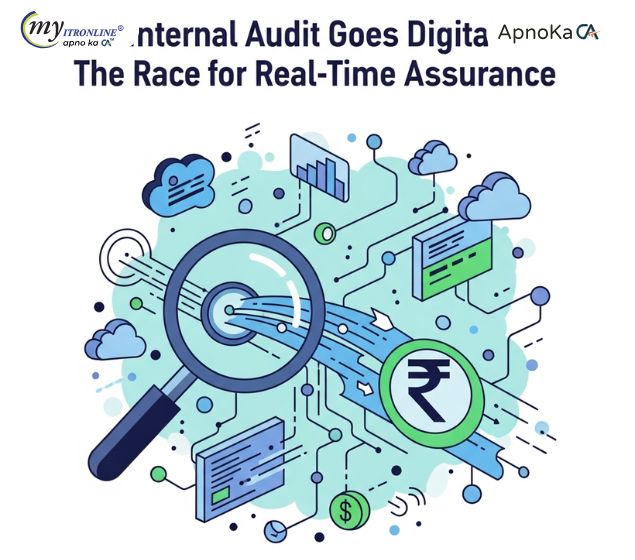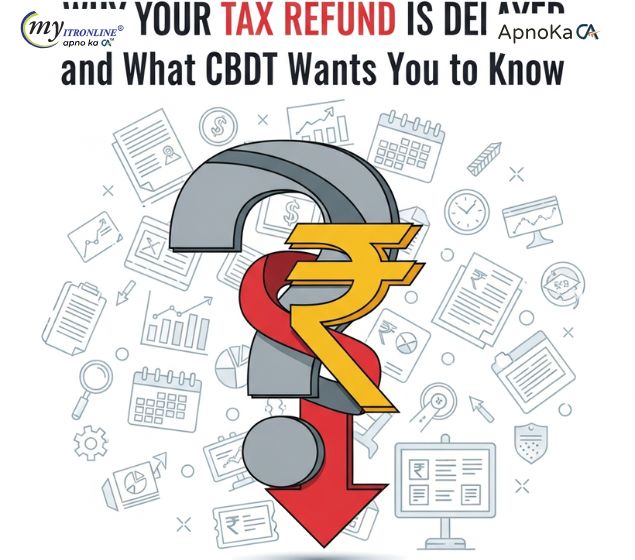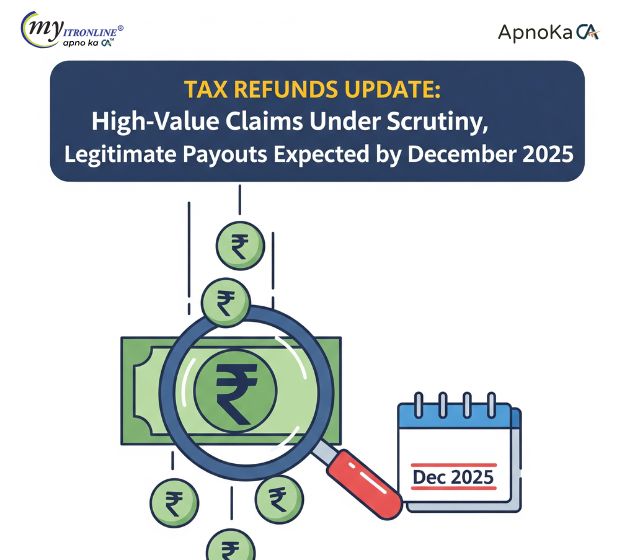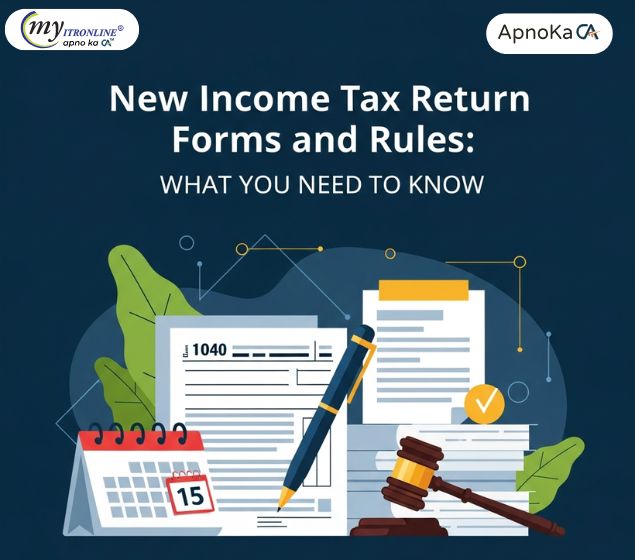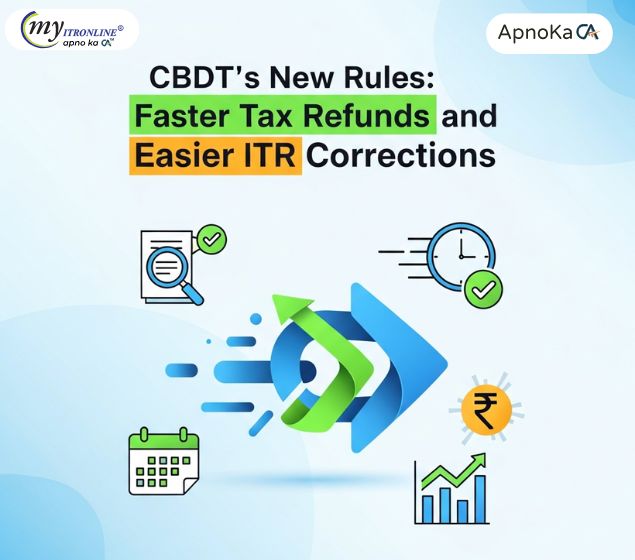A Comprehensive Guide to Sections 80E, 80G, 80TTA, 80TTB for Tax Savings
This blog post delves into crucial tax-saving sections beyond the popular 80C, specifically detailing Sections 80E (education loan interest), 80G (donations), 80TTA (savings interest for non-seniors), and 80TTB (interest on deposits for senior citizens). It explains who can claim these, their limits, and, most importantly, their non-applicability under the New Tax Regime for FY 2024-25. The post encourages taxpayers to compare regimes carefully and highlights myitronline's services for expert assistance.
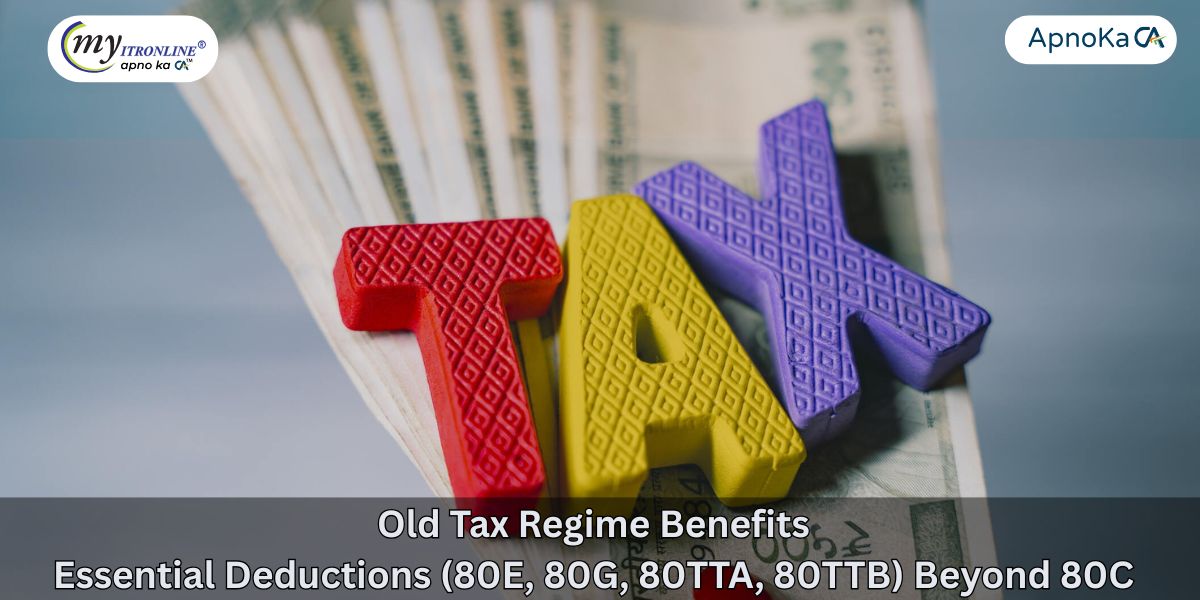
When it comes to saving on income tax in India, Section 80C often gets all the attention. It definitely offers strong benefits with deductions for popular investments like PPF, ELSS, EPF, and life insurance premiums. However, knowledgeable taxpayers realize that the tax-saving options go well beyond this one section.
The Income Tax Act provides several other valuable deductions that can greatly lower your taxable income. It is important to know that these deductions are mainly available under the Old Tax Regime. If you choose the New Tax Regime for the Financial Year 2024-25 (Assessment Year 2025-26), which is now the default option, you will not be able to claim most of these exemptions and deductions.
Let’s look at some of these often-overlooked but powerful tax-saving sections that can help in specific financial situations.
1. Section 80E: Deduction for Interest on Education Loan
Education is an important investment, and the government provides a tax benefit to help with the cost of higher studies.
- What it is: This section lets you claim a deduction for the full interest paid on an education loan. Notably, there is no limit on the amount of interest you can claim as a deduction.
- Who can claim: Individual taxpayers can claim this deduction for an education loan taken for their own higher education, or for the education of their spouse, children, or a student for whom they are a legal guardian.
- Key Conditions:
- The loan must be taken from an approved financial institution (like banks) or an approved charitable institution.
- The loan must cover higher education, which includes any full-time or part-time graduate or postgraduate course in engineering, medicine, management, or any other professional field. It also includes vocational courses after completing senior secondary education. This applies to studies in India or overseas.
- Duration of Deduction: The deduction lasts for 8 consecutive assessment years beginning from when you start paying interest, or until the interest is completely repaid, whichever happens first.
- What's NOT Covered: The principal amount of the education loan is not deductible under Section 80E.
- Impact of New Tax Regime: Not available under the New Tax Regime.
2. Section 80G: Deduction for Donations to Certain Funds, Charitable Institutions, etc.
For those who want to give back, Section 80G offers a tax benefit for donations.
- What it is: This section allows taxpayers to claim a deduction for contributions made to specific relief funds and charitable organizations.
- Who can claim: Any taxpayer – individual, HUF, company, etc. – can claim this deduction.
- Key Conditions:
- Donations must be made to institutions or funds recognized under Section 80G.
- Cash donations exceeding Rs. 2,000 are not eligible for a deduction. Donations should preferably be made via cheque, draft, or online payment.
- You must get a stamped receipt from the institution that includes its name, address, PAN, and the amount donated.
- Limit/Percentage of Deduction: The deduction under 80G varies based on the type of recipient institution. It falls into four categories:
- 100% deduction without any qualifying limit: E.g., Prime Minister’s National Relief Fund, National Defence Fund.
- 50% deduction without any qualifying limit: E.g., Jawaharlal Nehru Memorial Fund, Indira Gandhi Memorial Trust.
- 100% deduction subject to a qualifying limit: This applies to donations to certain institutions approved by the government, limited to 10% of your Adjusted Gross Total Income.
- 50% deduction subject to a qualifying limit: This applies to donations to other approved institutions, limited to 10% of your Adjusted Gross Total Income.
- Impact of New Tax Regime: Not available under the New Tax Regime.
3. Section 80TTA: Deduction for Interest on Savings Account (for Non-Senior Citizens)
Even the small interest earned on your savings bank account can provide a minor tax benefit.
- What it is: This section allows individuals and Hindu Undivided Families (HUFs) to claim a deduction on interest earned from savings bank accounts.
- Who can claim: Any individual or HUF, except senior citizens (since they have a different, better section).
- Limit: The maximum deduction allowed under Section 80TTA is Rs. 10,000.
- What's Covered: Interest earned from savings accounts with a bank, co-operative society, or post office.
- What's NOT Covered: Interest from Fixed Deposits (FDs), Recurring Deposits (RDs), or any other type of deposit is not included under 80TTA. It applies only to savings accounts.
- Impact of New Tax Regime: Not available under the New Tax Regime.
4. Section 80TTB: Deduction for Interest on Deposits (for Senior Citizens)
This section offers a much bigger benefit for senior citizens compared to 80TTA, recognizing their dependence on interest income.
- What it is: This section lets resident senior citizens claim a greater deduction on interest income from various deposits, effectively replacing Section 80TTA for senior citizens.
- Who can claim: Only a resident senior citizen (an individual aged 60 years or older at any point during the financial year).
- Limit: The maximum deduction allowed under Section 80TTB is Rs. 50,000.
- What's Covered: Interest earned from:
- Savings accounts with banks, co-operative societies, or post offices.
- Fixed Deposits (FDs) with banks, co-operative societies, or post offices.
- Recurring Deposits (RDs) with banks, co-operative societies, or post offices.
- Impact of New Tax Regime: Not available under the New Tax Regime.
Old Tax Regime vs. New Tax Regime: A Critical Decision for FY 2024-25
The most important point from this discussion is the strong difference in how these deductions are treated under the two tax regimes for FY 2024-25 (AY 2025-26).
- The New Tax Regime, now the default choice, has simplified lower tax rates but does not permit you to claim deductions under Section 80E, 80G, 80TTA, or 80TTB.
- The Old Tax Regime, though it has higher tax rates, lets you claim all these valuable deductions (including HRA, 80C, 80D, etc.).
Your choice of tax regime should be based on a careful comparison. If you have significant education loan interest, make large donations, or earn a lot of interest income (especially as a senior citizen), sticking with the Old Tax Regime might lead to lower overall taxes. Use an online tax calculator to check your tax liability under both regimes based on your specific income and eligible deductions.
Conclusion
While Section 80C remains a key part of tax planning, ignoring other powerful sections like 80E, 80G, 80TTA, and 80TTB can lead to missed tax savings. Each of these sections targets specific financial activities, providing relief where it is most needed.
For Financial Year 2024-25, deciding between the Old and New Tax Regimes is more crucial than ever. Understand your eligibility for these deductions, calculate your tax under both options, and make an informed choice that best meets your financial goals. Don’t simply accept the default; plan for maximum savings!
Confused about which tax regime is right for you or how to claim these deductions? Let myitronline simplify your tax planning!
At myitronline, we provide expert advice and easy online filing services to help you understand your tax-saving options and file your ITR accurately for FY 2024-25 (AY 2025-26). Visit our website at www.myitronline.com or call us at 9971055886 for quick and trustworthy ITR filing solutions.
FILING YOUR INCOME TAX RETURN F.Y 2024-25 (A.Y. 2025-2026) WITH MYITRONLINE
The income tax filing deadline is right around the corner. If you haven’t filed yet, do it today with Myitronline! Avoid last minute rush and file your tax return today on MYITRONLINE in Just 5 mins.(www.myitronline.com)
If you are looking for eCA assistance to file your income tax return/ GST, you can opt for MYITRONLINE eCA assisted plan starting
Upload Salary Individual Form-16
If you have any questions with filing your tax return, please reply to this mail. info@myitronline.com OR call 9971055886,8130309886.
Note-All the aforementioned information in the article is taken from authentic resources and has been published after moderation. Any change in the information other than fact must be believed as a human error. For queries mail us at marketing@myitronline.com
Krishna Gopal Varshney
An editor at apnokacaKrishna Gopal Varshney, Founder & CEO of Myitronline Global Services Private Limited at Delhi. A dedicated and tireless Expert Service Provider for the clients seeking tax filing assistance and all other essential requirements associated with Business/Professional establishment. Connect to us and let us give the Best Support to make you a Success. Visit our website for latest Business News and IT Updates.
Leave a reply
Your email address will not be published. Required fields are marked *Share this article
Krishna Gopal Varshney, Founder & CEO of Myitronline Global Services Private Limited at Delhi. A dedicated and tireless Expert Service Provider for the clients seeking tax filing assistance and all other essential requirements associated with Business/Professional establishment. Connect to us and let us give the Best Support to make you a Success. Visit our website for latest Business News and IT Updates.
View articles








